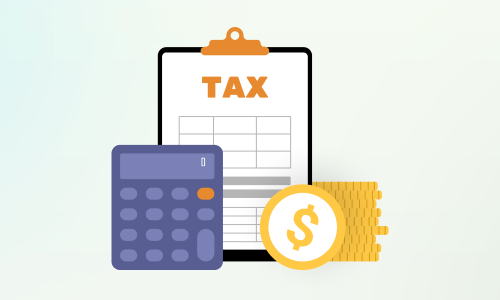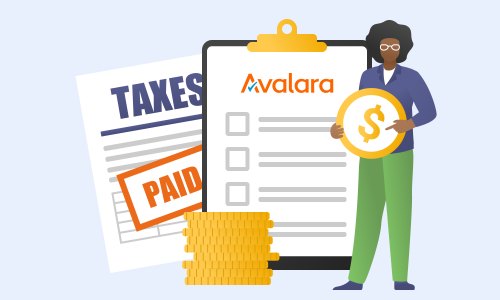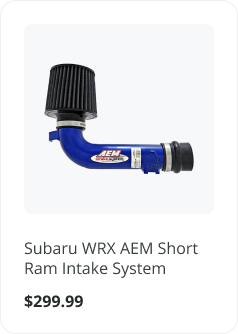Streamlined Sales Tax: How It Affects eCommerce Shops

Even though it’s been around since 1999 and has 24 member states, many businesses have a lot of questions about the Streamlined Sales and Use Tax Agreement.
On February 24, X-Cart hosted a webinar with our partners at Avalara, answering a ton of questions around nexus, SST, and even international tax rules. Watch the replay below.

If you’re faced with collecting sales tax in multiple states, it could be worth your while to learn about it:
Any business that qualifies as a volunteer seller in Streamlined Sales Tax (SST) states may obtain sales tax calculation and reporting services from a Certified Service Provider, like Avalara, at no cost.
What is SST?
Streamlined Sales Tax (SST) grew out of state efforts to tax remote sales, the complexity of sales tax compliance, and the emergence of eCommerce. Participating states decided to streamline sales and use tax compliance because the Supreme Court of the United States had twice ruled — in National Bellas Hess v. Illinois (1967) and Quill Corp. v. North Dakota (1992) — that state and local sales tax compliance was too complicated to inflict on out-of-state businesses with no physical presence in the state.
Thus, state and local governments worked with the business community to simplify the complex sales tax systems that led to the Supreme Court rulings in National Bellas Hess and Quill. The resulting Streamlined Sales and Use Tax Agreement works to make sales tax administration in SST states less costly and burdensome for all businesses and all types of commerce.
As of this writing, the following are full member states:
- Arkansas
- Georgia
- Indiana
- Iowa
- Kansas
- Kentucky
- Michigan
- Minnesota
- Nebraska
- Nevada
- New Jersey
- North Carolina
- North Dakota
- Ohio
- Oklahoma
- Rhode Island
- South Dakota
- Utah
- Vermont
- Washington
- West Virginia
- Wisconsin
- Wyoming
Tennessee is an associate member state. SST was originally conceived by 44 states, some of which are still working toward full membership.
Why Care About SST Now?
The Supreme Court overruled Quill’s physical presence rule in South Dakota v. Wayfair, Inc. (June 21, 2018). While having a physical presence in a state still triggers a sales tax collection obligation, the Wayfair ruling grants states the authority to require sellers with no physical presence in a state to collect sales tax based on their economic activity in the state, or economic nexus.
More than 37 states — including all but one of the SST member states — have adopted economic nexus since Wayfair; each already requires or soon will require certain out-of-state sellers to collect sales tax.
Registering for SST can make sales tax compliance in SST states much more streamlined and less burdensome, especially for businesses with a high volume of sales into multiple SST states. Indeed, the Wayfair ruling listed South Dakota’s membership in SST as one of three reasons South Dakota’s economic nexus law isn’t an undue burden on remote sellers.
Additionally, businesses that qualify as volunteer sellers, explained in more detail below, can avoid the standard fees for registration, transactions, and filing in SST member states when they use a Certified Service Provider (CSP) like Avalara.
How SST Simplifies Sales Tax Compliance
SST member states are required to have:
- A central, electronic registration system
- Consumer privacy protection
- Simplified administration of exemptions
- Simplified state and local tax rates
- Simplified tax remittances and returns
- State administration of sales and use tax collections (no self-collecting local jurisdictions)
- Uniform state and local tax bases
- Uniform sourcing rules for all taxable transactions
- Uniform tax base definitions and rules
Any business may register through the SST to receive the standard benefits listed above — simplified registration and more uniform rules and regulations — in any or all 24 member states. Those who do may also receive amnesty in select states (subject to limitations).
There are additional benefits for volunteer sellers: The state compensates CSPs for providing the software and services needed to set up and integrate its Certified Automated System (CAS) with your system, calculate the tax due, prepare and file required returns, remit the tax due, and more. Thus, businesses that qualify as an SST volunteer seller benefit from:
- No SST registration fees in participating states
- No calculation fees in participating states
- No monthly filing fees in participating states
- Audit protection in participating states
Volunteer vs. Non-Volunteer Status
To qualify as a volunteer seller in a member state and obtain CSP services at no cost, your business must meet all the following criteria during the 12-month period immediately preceding the date of registration with the member state:
- No fixed place of business for more than 30 days in the state
- Less than $50,000 of property in the member state
- Less than $50,000 of payroll in the state
- Less than 25 percent of total property or payroll in the state
- Additional criteria
Having economic nexus in a state doesn’t automatically disqualify you from obtaining volunteer status.
Outsource Sales Tax Management To a CSP
Automating sales tax compliance facilitates sales tax management for any business required to collect sales tax in multiple states. In SST states, there are added benefits to working with a CSP, both for non-volunteer and volunteer sellers.
As a CSP — one of the first certified by SST — Avalara must meet rigorous standards for data processing and management of sales tax information. They can help you with all aspects of sales tax compliance, from determining where you have sales tax nexus and an obligation to collect sales tax, to audit response.
Learn more about working with Avalara in SST states.
(Need to register in other states outside of these 24 SST states? Avalara can help too!)
*South Dakota law also “affords small merchants a reasonable degree of protection” by providing an exception for sellers with less than $100,000 in sales or fewer than 200 transactions in the state in the current or previous calendar year; and it prohibits retroactive application of its economic nexus law.

Gail Cole began researching and writing about sales tax for Avalara in 2012 and has been fascinated with it ever since. She has a penchant for uncovering unusual tax facts, and endeavors to make complex sales tax laws more digestible for both experts and laypeople. Avalara is a leading provider of cloud-based tax and compliance automation solution for businesses of all sizes. Sign up for Avalara's 60-day free trial and find out how they can help your business grow.







